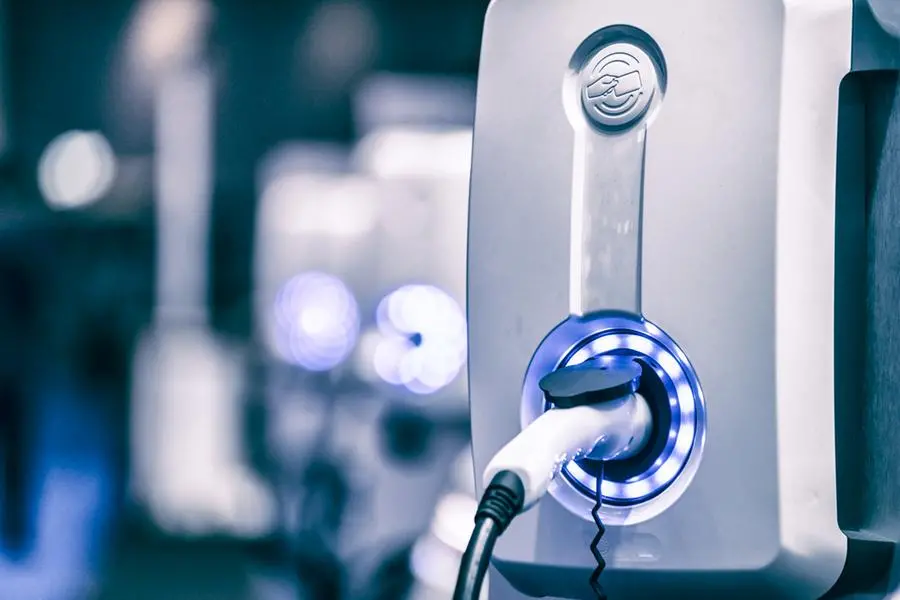PHOTO
AMMAN — Passenger electric vehicles (EVs) sales in Jordan are expected to expand by 45.9 per cent in 2023, reaching an annual sales volume of roughly 23,400 units, according to a recent report from Fitch Solutions.
The report also forecasts that EV sales in Jordan will average an annual growth rate of 10.4 per cent between 2023 and 2032, reaching a sales volume of over 40,000 units by 2032.
The report, published last June, attributes Jordan’s high uptake of passenger EVs to reduced import taxes, the arrival of new affordable Chinese models and high fuel prices.
Jordan has reduced the import duties on EVs from 25 to 10 per cent, which is “significantly” lower than import duties imposed on hybrids and gasoline cars, which currently stand at 55 per cent and 86 per cent, respectively, the report said.
The report also noted that data indicates that the majority of consumers in Jordan prefer affordable vehicle models. It showed that imports of used vehicles account for 70 per cent of total imported vehicles in Jordan, compared to new vehicles, which make up only 20 per cent.
According to the report, there are currently 13 different Chinese brands in Jordan that comprise 40 per cent of the local market share.
The popularity of Chinese models, which is reflected across the MENA region, is due to affordability and wide availability compared with other brands, as the Chinese market has better access to semiconductor chips.
It also predicts that the “developing” EV manufacturing sector in the MENA region will increasing EV affordability for Jordanians.
“In March 2023, Egypt, UAE, Jordan and Bahrain discussed the production of the first joint Arab electric vehicle during the higher committee meetings of the Integrated Industrial Partnership held in Cairo,” the report noted.
Commercial electrical vehicles
The report pointed out that Jordan's commercial EV segment will remain “very small” over the short term.
However, “long-term prospects of the segment remain strong as more commercial EV models become available [buses and trucks] and companies increase their drive to decarbonise supply chains,” the report said.
The Kingdom’s commercial EV sales are expected to expand by 61.5 per cent in 2023, reaching around 21 units. From 2023 to 2032, commercial EV sales in Jordan are expected to average an annual growth rate of 20 per cent, reaching an annual sales volume of roughly 100 units, the report stated.
“The government has also announced that it will purchase 151 low-emission buses, including 15 battery-electric buses, to integrate into the 'Rapid Transit Project' in Amman. Several delivery and transportation companies … have also adopted long-term strategies to electrify their respective vehicle fleets,” it added.
Charging stations
“While EVs still offer a better value proposition for Jordanians, we expect more of the population to hold off on new EV purchases until the local EV charging network is able to develop sufficiently,” the report stated.
According to local authorities, 54 licences for electric charging stations, including 41 licences for public charging stations, and 13 licences for private charging stations were issued in 2022. The government also issued 2,200 approvals for the installation of electricity meters in homes for the purpose of charging vehicles.
The “2025 Jordan National Plan” involves references to developing Jordan’s EV charging infrastructure and the German-based company eCharge is working with the government to install 10,000 public charging stations over the next three years, according to the report.
“These factors pose a notable upside for EV adoption in the country, and with continued fiscal incentives from the government, alongside the development of the domestic charging network, we expect sales will continue to increase in the short term,” the report stated.
© Copyright The Jordan Times. All rights reserved. Provided by SyndiGate Media Inc. (Syndigate.info).




















